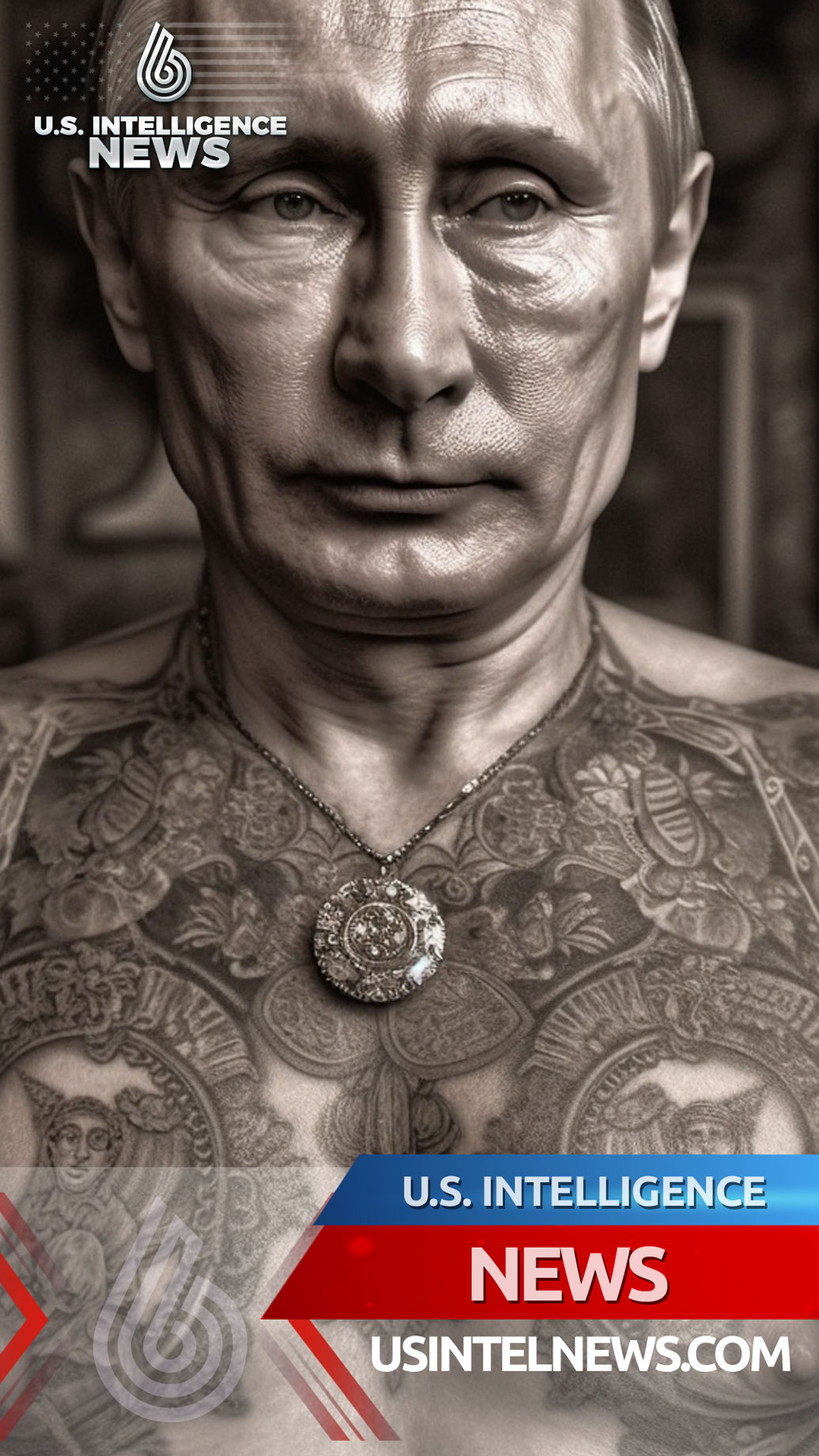
The U.S. Intelligence Community
Memorandum for the Heads of Executive Departments and Agencies
SUBJECT: Uniform Standards for Tribal Consultation
By the authority vested in me as President by the Constitution and the laws of the United States of America, it is hereby ordered as follows:
Section1. Background. The United States has a unique, legally affirmed Nation-to-Nation relationship with American Indian and Alaska Native Tribal Nations, which is recognized under the Constitution of the United States, treaties, statutes, Executive Orders, and court decisions. The United States recognizes the right of Tribal governments to self-govern and supports Tribal sovereignty and self-determination. The United States also has a unique trust relationship with and responsibility to protect and support Tribal Nations. In recognition of this unique legal relationship, and to strengthen the government-to-government relationship, Executive Order 13175 of November 6, 2000 (Consultation and Coordination With Indian Tribal Governments), charges all executive departments and agencies (agencies) with engaging in regular, meaningful, and robust consultation with Tribal officials in the development of Federal policies that have Tribal implications. Executive Order 13175 also sets forth fundamental principles and policymaking criteria.
The Presidential Memorandum of January 26, 2021 (Tribal Consultation and Strengthening Nation-to-Nation Relationships), requires agencies to submit detailed plans of action to implement the policies and directives of Executive Order 13175. In response, all agencies subject to Executive Order 13175 submitted plans of action, including over 50 agencies that submitted a consultation plan of action for the first time. Agencies also conducted more than 90 national-level Tribal consultations, focusing specifically on agency Tribal consultation policies. The purpose of this memorandum is to establish uniform minimum standards to be implemented across all agencies regarding how Tribal consultations are to be conducted. This memorandum is designed to respond to the input received from Tribal Nations regarding Tribal consultation, improve and streamline the consultation process for both Tribes and Federal participants, and ensure more consistency in how agencies initiate, provide notice for, conduct, record, and report on Tribal consultations. These are baseline standards; agencies are encouraged to build upon these standards to fulfill the goals and purposes of Executive Order 13175 consistent with their unique missions and engagement with Tribal Nations on agency-specific issues.
Sec. 2. Consultation Principles. Tribal consultation is a two-way, Nation-to-Nation exchange of information and dialogue between official representatives of the United States and of Tribal Nations regarding Federal policies that have Tribal implications. Consultation recognizes Tribal sovereignty and the Nation-to-Nation relationship between the United States and Tribal Nations, and acknowledges that the United States maintains certain treaty and trust responsibilities to Tribal Nations. Consultation requires that information obtained from Tribes be given meaningful consideration, and agencies should strive for consensus with Tribes or a mutually desired outcome. Consultation should generally include both Federal and Tribal officials with decision-making authority regarding the proposed policy that has Tribal implications. Consultation will ensure that applicable information is readily available to all parties, that Federal and Tribal officials have adequate time to communicate, and that after the Federal decision, consulting Tribal Nations are advised as to how their input influenced that decision-making. All of these principles should be applied to the extent practicable and permitted by law.
Sec. 3. Designating an Agency Point of Contact for Tribal Consultation. (a) The head of each agency shall designate a primary point of contact for Tribal consultation matters who is responsible for advising agency staff on all matters pertaining to Tribal consultation and serving as the primary point of contact for Tribal officials seeking to consult with the agency.
(b) The head of each agency shall consider designating additional points of contact as necessary to facilitate consultation on varied subject matter areas within the agency.
(c) Each agency shall provide the names and contact information of the designated agency points of contact for Tribal consultation on its website, as well as to the White House Office of Intergovernmental Affairs and the White House Council on Native American Affairs.
(d) The designated agency points of contact may delegate consultation responsibilities to other decision-making agency officials within their agency as necessary and appropriate.
Sec. 4. Determining Whether Consultation Is Appropriate. The head of each agency shall ensure that agency staff undertake an analysis as early as possible to determine whether Tribal consultation is required or appropriate consistent with Executive Order 13175. This analysis should occur regardless of whether a Tribal government requests consultation. When a Tribal government requests consultation, the agency — to the extent that it has not yet performed the analysis to determine whether consultation is appropriate — shall conduct that analysis as soon as possible and respond to the Tribe within a reasonable time period. If there is a reasonable basis to believe that a policy may have Tribal implications, consistent with the definition in Executive Order 13175, the agency shall follow the applicable requirements for consultation. Agencies may still engage in Tribal consultation even if they determine that a policy will not have Tribal implications, and should consider doing so if they determine that a policy is of interest to a Tribe or Tribes.
Sec. 5. Notice of Consultation. (a) When inviting a Tribe or Tribes to consult, the head of each agency should:
(i) develop a notice of consultation, which includes:
(A) sufficient information on the topic to be discussed, in an accessible language and format, and context for the consultation topic, to facilitate meaningful consultation;
(B) the date, time, and location of the consultation, as requested by the agency or as developed in consultation with the Tribe or Tribes;
(C) if consulting virtually or by telephone, links to join or register in advance;
(D) an explanation of any time constraints known to the agency at that time, such as statutory deadlines;
(E) deadlines for any written comments on the topic; and
(F) names and contact information for agency staff who can provide more information;
(ii) transmit the notice of consultation, using the agency’s standard method of communication, to each affected Tribal government and consider posting it to the agency’s website or any centralized Federal Government site for providing notice of or coordinating Tribal consultations;
(iii) provide notice of at least 30 days to the Tribe or Tribes of any planned consultations, except as provided in subsection (c) of this section;
(iv) provide appropriate, available information on the subject of consultation including, where consistent with applicable law, a proposed agenda, framing paper, and other relevant documents to assist in the consultation process; and
(v) allow for a written comment period following the consultation of at least 30 days, except as provided in subsection (c) of this section.
(b) The head of each agency shall ensure that agency officials responsible for sending invitations to consult to interested or potentially affected Tribal governments use available tools, databases, and agency documentation, as well as communicate with agency representatives who may be knowledgeable about those Tribes and the location(s) affected by the policy with Tribal implications, to ensure their invitation efforts are appropriately inclusive. Such efforts should account for the fact that Tribes may have connections or legally protected rights to locations and resources beyond their current Tribal lands and Tribal government offices such as off-reservation fishing, hunting, gathering, or other rights.
(c) If there are time constraints such that 30 days’ notice of consultation is not possible, or that the post-consultation written comment period described in subsection (a)(v) of this section must be shorter than 30 days, the notice of consultation should include information as to why the standard notice or written comment period cannot be provided. Upon the request of a Tribe, or where it would serve Tribal interests or fulfill certain trust obligations to Tribal Nations, agencies should consider adjusting deadlines for notice of consultations and for accepting written comments.
Sec. 6. Conducting the Consultation. Throughout a consultation, the head of each agency, or appropriate representatives, shall recognize and respect Tribal self-government and sovereignty; identify and consider Tribal treaty rights, reserved rights, and other rights; respect and elevate Indigenous Knowledge, including cultural norms and practices relevant to such consultations; and meet the responsibilities that arise from the unique legal relationship between the Federal Government and Tribal governments. The head of each agency should ensure that agency representatives with appropriate expertise and, to the extent practicable, decision-making authority regarding the proposed policy are present at the Nation-to-Nation consultation. The head of each agency should consider conducting the consultation in a manner that prioritizes participation of official Tribal government leaders.
Sec. 7. Record of the Consultation. (a) The head of each agency shall maintain a record of the consultation process that includes:
(i) a summary of Tribal input received;
(ii) a general explanation of how Tribal input influenced or was incorporated into the agency action; and
(iii) if relevant, the general reasoning for why Tribal suggestions were not incorporated into the agency action or why consensus could not be attained.
(b) The head of each agency shall timely disclose to the affected Tribe or Tribes the outcome of the consultation and decisions made as a result of the consultation. To the extent permitted by applicable law, the head of each agency shall seek to ensure that information designated as sensitive by a Tribal government is not publicly disclosed. Agencies should obtain advance informed consent from Tribal communities for the use of sensitive information provided by the Tribe, and should inform Tribal representatives that certain Federal laws, including the Freedom of Information Act, may require disclosure of such information.
(c) For national and regional consultations, or if otherwise appropriate, the head of each agency should also consider publicly posting the record of consultation to foster ease of reference and use by other agencies, employees, and processes, and to minimize burdens on Tribes to provide similar input in multiple consultations. Decisions regarding whether to publicly post a record of consultation should be made with Tribal input.
(d) The record of consultation does not waive any privilege or other exception to disclosure pursuant to the Freedom of Information Act or its implementing regulations.
Sec. 8. Training. (a) The head of each agency shall require annual training regarding Tribal consultation for agency employees who work with Tribal Nations or on policies with Tribal implications. This training shall include, at minimum, review of Executive Order 13175, this memorandum, and any applicable Tribal consultation policy of the agency.
(b) In addition, the Secretary of the Interior and the Director of the Office of Personnel Management (OPM), in consultation with Tribal Nations, shall establish training modules regarding Tribal consultation to be available for agency employees who work with Tribal Nations or on policies with Tribal implications. These training modules should explain the concepts of Tribal consultation, the Nation-to-Nation relationship, and Tribal sovereignty. Agencies may use these training modules to satisfy the annual training requirement set forth in subsection (a) of this section.
(c) Within 180 days of the date of this memorandum, the Director of OPM, in consultation with the Secretary of the Interior, shall report to the President on progress toward establishing training modules regarding Tribal consultation and shall identify additional resources or other support necessary to implement this training.
Sec. 9. Definitions. The terms “Tribal officials,” “policies that have Tribal implications,” and “agency” as used in this memorandum are as defined in Executive Order 13175. The terms “Tribes” and “Tribal Nations” as used in this memorandum have the same definition as the term “Indian Tribe” as defined in Executive Order 13175.
Sec. 10. Scope. Nothing in this memorandum shall be construed to impair or otherwise affect the ability of heads of agencies to set more specific or more stringent standards, or to incorporate other best practices, for conducting Tribal consultation.
Sec. 11. General Provisions. (a) Nothing in this memorandum shall be construed to impair or otherwise affect:
(i) the authority granted by law to an executive department or agency, or the head thereof; or
(ii) the functions of the Director of the Office of Management and Budget relating to budgetary, administrative, or legislative proposals.
(b) This memorandum shall be implemented consistent with applicable law and subject to the availability of appropriations.
(c) This memorandum is not intended to, and does not, create any right or benefit, substantive or procedural, enforceable at law or in equity by any party against the United States, its departments, agencies, or entities, its officers, employees, or agents, or any other person.
(d) Independent agencies are strongly encouraged to comply with the provisions of this memorandum.
(e) The Director of the Office of Management and Budget is authorized and directed to publish this memorandum in the Federal Register.
JOSEPH R. BIDEN JR.
The post Memorandum on Uniform Standards for Tribal<span class="dewidow"> </span>Consultation appeared first on The White House.


 Putin’s Economic Gambit: Russia Aims for Global Oil Dominance Amid Sanctions Pressure
Putin’s Economic Gambit: Russia Aims for Global Oil Dominance Amid Sanctions Pressure  Are North Korean Soldiers a Burden or Asset in Russia’s Offensive?
Are North Korean Soldiers a Burden or Asset in Russia’s Offensive?  As Bitcoin Faces a Market Meltdown, Ethicoin Rises as the Ethical Alternative for a Sustainable Crypto Future!
As Bitcoin Faces a Market Meltdown, Ethicoin Rises as the Ethical Alternative for a Sustainable Crypto Future!  Breaking News: Armenia Facilitates Russia’s Gold Sanctions Evasion in Billion-Dollar Trade Scheme
Breaking News: Armenia Facilitates Russia’s Gold Sanctions Evasion in Billion-Dollar Trade Scheme 


